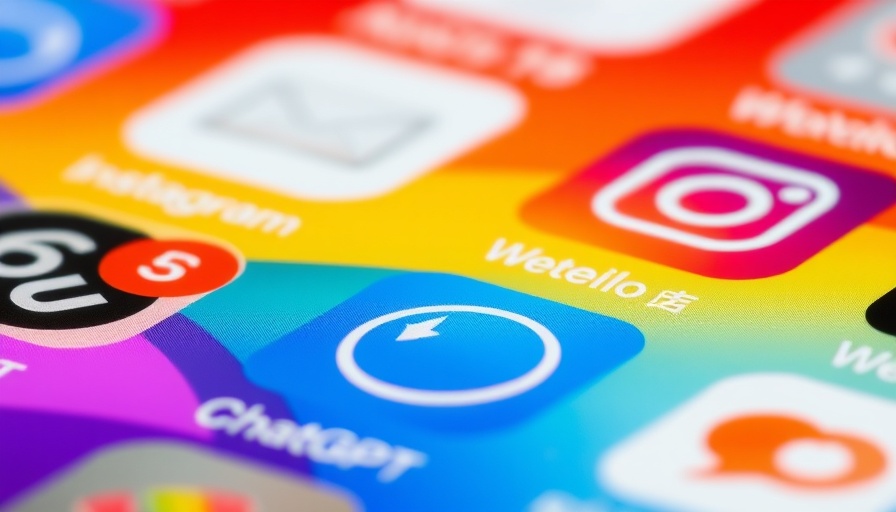
The Rise of AI and the Copyright Debate
As artificial intelligence (AI) continues to evolve, the clash between technology corporations and creative industries intensifies. Tech giants like OpenAI, Meta, and Google are advocating for exemptions from copyright laws to facilitate the development of their AI models, citing competition from foreign entities such as China's burgeoning AI sector. According to these companies, restrictions on the training of AI on copyrighted content would cripple American innovation and provide foreign developers with an unassailable edge.
The tech industry argues that under current laws, training AI with copyrighted data constitutes fair use. However, this stance meets strong resistance from Hollywood unions and thousands of creators who warn that copyright exemptions would allow these tech firms to exploit original content without any compensation to its creators. The ongoing discourse echoes a long-standing tension between traditional media creators and tech innovation.
Hollywood's Response: Protecting Creatives or Resisting Progress?
In what's become an emblematic instance of this conflict, over 400 notable creators, including those from the Hollywood unions, are voicing their concerns. They argue that tech companies are seeking a preemptive escape from copyright infringement claims. This push for immunity raises ethical questions about who truly benefits from AI advancements—the corporations leveraging creators' work to train their models or the artists whose contributions make these developments possible.
The statement made by OpenAI regarding the competitive disadvantage posed by China's AI landscape reflects a sense of urgency within the tech community. It suggests that if America falls behind in AI development, the ramifications will extend far beyond the tech realm, potentially influencing global economic dynamics.
Exploring New Frontiers: The Role of Platforms like Roblox
Beyond the contentious discussions surrounding copyright, companies like Roblox are channeling AI into innovative content creation tools. Roblox recently introduced its Mesh Generator API, a major stride in democratizing 3D object creation through AI-generated 2D images. This initiative not only pushes the boundaries of gaming but also represents a shift towards a more participatory digital content landscape.
According to Roblox, its vision is to empower users to streamline the design process, potentially expanding its audience within the multi-billion-dollar gaming market. As AI technology becomes more accessible, the dynamics of content creation could see significant transformations, making it crucial for both tech companies and creators to navigate these shifts thoughtfully.
The Russo Brothers: AI in Hollywood’s Creative Landscape
Not all industry voices echo apprehension; well-known directors Joe and Anthony Russo have come forward to defend AI’s role in filmmaking. They recognize AI's current limitations, emphasizing that while it's not ready for critical functions, it can augment creativity and assist in areas like voice modulation. The Russo brothers' positive perspective reflects a burgeoning acknowledgment within Hollywood that AI could enhance artistic expression rather than merely disrupt traditional practices.
Future Implications of AI and Copyright Laws
As the dialogue surrounding AI and copyright evolves, predicting future outcomes becomes increasingly complex. Will tech giants succeed in obtaining the legal protections they seek, or will the creative industries secure the rights necessary to protect their intellectual property? The outcome could shape the landscape of innovation and artistic expression for decades to come.
Amid this uncertainty, AI continues to offer vast possibilities across various domains, from gaming to filmmaking. Engaging with these developments means exploring not just the technologies themselves but also the moral and ethical questions they pose.
What Can You Do?
As an AI enthusiast, it's essential to stay informed about the rapidly changing landscape of technology and creativity. Consider advocating for transparency and equity in the development of AI tools, supporting legislation that protects artists, and participating in discussions around the ethical implications of these technologies. By doing so, you contribute to a balanced future where innovation and creativity can coexist synergistically.
To learn more about ongoing AI developments and the impact on industries around the globe, subscribe to emerging tech newsletters or join forums dedicated to AI discussions. Your curiosity and engagement can help shape the future of AI, ensuring it benefits everyone involved.
 Add Row
Add Row  Add
Add 




 Add Row
Add Row  Add
Add 

Write A Comment